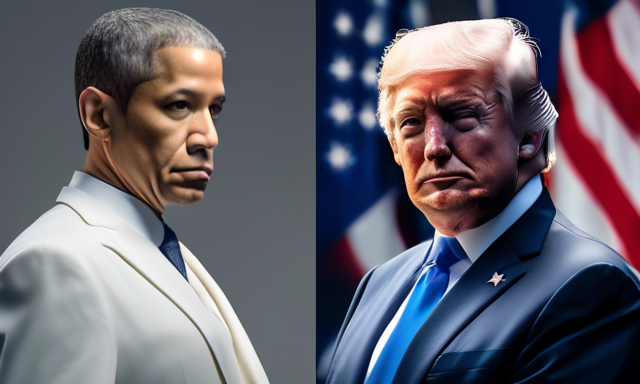Understanding Market Reactions During This Year’s U.S. Presidential Election 🗳️
This year’s U.S. presidential election is poised to significantly influence the equity markets. Recent insights from Bank of America highlight the expected outcomes based on various election scenarios, emphasizing that while the election matters, it’s the economic fundamentals that will ultimately drive market performance. Here’s a breakdown of potential market reactions based on different electoral outcomes.
The Election’s Impact on Equities 📈
Bank of America’s equity strategist, Ohsung Kwon, believes that the upcoming election could be a vital factor but does not anticipate dramatic market shifts. Historically, the S&P 500 has only experienced fluctuations of 2% or more on Election Days about 25% of the time since 1928. Kwon argues that the implications for stock prices resulting from the election will likely be more complex than straightforward assumptions suggest.
Kwon stated in a recent note, “Earnings hold more significance for stock valuations than political outcomes. The election will alleviate uncertainties but won’t dominate trade decisions.” As the election approaches, markets have shown a downturn, indicating uncertainty yet rich with potential for response once the outcomes are clear.
Predicted Market Reactions to Different Election Scenarios 🔮
Republican Majority & Trump’s Return 🏛️
Should former President Donald Trump win the presidency again while the Republicans retain control of both Congress chambers, Kwon anticipates an initial market response concentrated on highly regulated sectors. Trump’s agenda includes significant deregulation, likely appealing to industries like:
- Industrial Sector
- Consumer Discretionary
- Financial Services
However, sectors such as real estate and technology may experience a more subdued reaction due to their relatively low levels of regulation. Kwon also points out that these initial reactions could dissipate over the longer term, particularly if rising yields tied to concerns about U.S. debt and proposed tariffs emerge.
Split Control with Trump’s Presidency ⚖️
If Trump wins the presidency but shares control of Congress with Democrats, Kwon predicts a mostly neutral climate for equity markets. In this scenario, tariffs proposed by Trump may still be implemented, but his broader deregulation plans could face obstacles. The dynamics of negotiations and legislative gridlock will play a critical role in shaping market sentiment.
Democratic Sweep and Potential Tax Changes 🏦
A victory for Vice President Kamala Harris, along with a Democratic majority in Congress, could lead to tax reforms that may see corporate tax rates rise from 21% to 28%. Kwon points out that this shift may negatively impact earnings for specific sectors, including:
- Consumer Discretionary
- Communications Services
- Financial Services
In such a situation, buying opportunities could arise as the market reacts to lower stock prices, primarily if the Harris administration chooses to enhance fiscal spending, potentially acting as a growth stimulant for the stock market.
Status Quo with a Split Democratic Control 🌐
If Harris assumes the presidency but Congress remains Republican, Kwon believes that economic fundamentals will once again take center stage. This situation may redirect Wall Street’s focus back to essential economic indicators and the Federal Reserve’s interest rate strategies. Historically, price momentum in equities tends to persist for weeks following the election, with patterns from previous election years reinforcing this outlook.
Looking beyond the elections, Kwon mentions that the Federal Reserve might have justifiable grounds to implement further cuts to interest rates. He anticipates a sequence of four rate reductions at upcoming Federal Open Market Committee meetings, which aligns with the broader narrative of a cooling labor market.
Conclusion: Navigating the Uncertainty Ahead 🔍
As this year’s election draws closer, it’s crucial to understand that while political events significantly influence the market, the underlying economic fundamentals remain predominant. Be prepared to observe how these scenarios unfold and their potential repercussions on equity investments in the coming months.
Sources:





 By
By
 By
By
 By
By
 By
By
